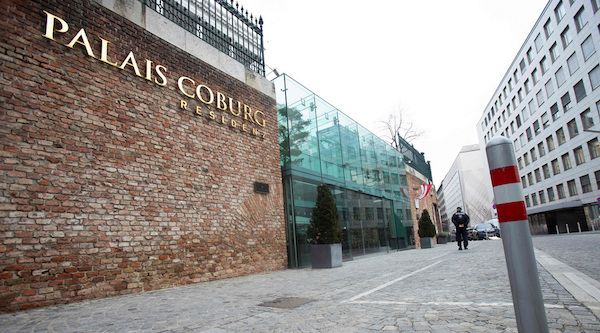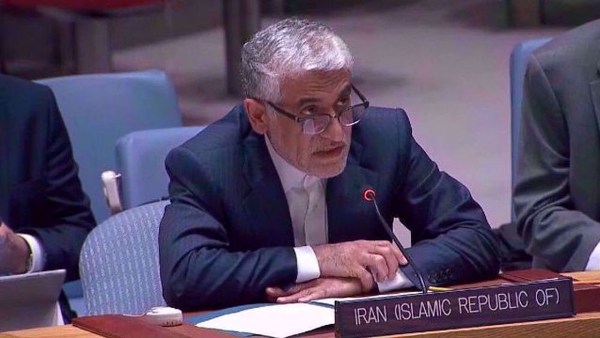
A police officer patrols outside the Hotel Palais Coburg, where talks are planned to resume on reviving the 2015 Iran deal, Vienna, Austria, on December 27, 2021. (File photo by AFP)
US and European officials say the sanctions removal negotiations in Vienna are entering their "final stage," as negotiators take a break from the eighth round of talks to go back to their respective capitals for consultations.
The negotiators are expected to return to Vienna next week, hopefully after "political decisions" would be made by the participating countries.
"January has been the most intensive period of these talks to date," the three European parties to the nuclear deal - France, Britain, and Germany or the so-called E3 - said in a statement on Friday.
"Everyone knows we are reaching the final stage, which requires political decisions," they said.
Echoing the sense of urgency, a US official familiar with the issue has said that "no one should be surprised that we are coming to a final stage and that we need political decisions on the hardest issues."
That is why, the official continued, everyone is going back to their respective capitals.
Head of the Russian negotiating team in Vienna, Mikhail Ulyanov, also made similar remarks on Saturday.
"The negotiations have reached [an] advanced stage when political decisions are needed. The 8th round is expected to resume next week," he wrote in a tweet.
"We are eyeing the end of this negotiation, but it is important to understand that core political issues on all topics are still unresolved," Politico quoted a senior Western diplomat as saying.
Multilateral talks have been underway for almost ten months during the Joe Biden administration, who had vowed to re-enter the Iran deal, officially called the Joint Comprehensive Plan of Action (JCPOA).
In spite of his criticisms of the "failed maximum pressure" campaign pursued by his predecessor, Biden has not only kept all the sanctions imposed under Donald Trump but has also unleashed new ones.
For that reason, Tehran has continued to reject direct negotiations with the US in Vienna.
Trump launched the maximum pressure policy against Iran in 2018 after he pulled the US out of the JCPOA, claiming he could "get a better deal" than the one reached under his predecessor Barack Obama.
The former American president declared that he intended to compel Iran to negotiate a deal that would restrict the Islamic Republicís ballistic missile program and its influence in its own region.
Iran flatly refused to negotiate a "Trump deal" and rejected his repeated calls to hold talks at any level. Amid soaring tensions with the tightening of US sanctions, Iran started in 2019 to reduce its nuclear obligations under the deal as per its contractual rights.
Late in November last year, the JCPOA participants resumed the Vienna talks for the first time under Iranís new president Ebrahim Raeisi. Since then, Iran has repeatedly emphasized that it seeks a "good agreement" in the Austrian capital.
On Friday, Iranian Foreign Minister Hossein Amir-Abdollahian said Tehran is firmly determined to reach a "good, lasting and reliable" agreement through the Vienna process.
A day earlier, Brett McGurk, the White House national security councilís Middle East coordinator, said "weíre in the ballpark of a possible deal, adding, however, "But again, Iím not going to put odds on this. Thereís [also] a very real chance that these talks could collapse very soon,."
LINK: https://www.ansarpress.com/english/26533
TAGS:






























 Iran rejects Reuters report on deal in Vienna talks as effort to boost Western sideís standing
Iran rejects Reuters report on deal in Vienna talks as effort to boost Western sideís standing 




